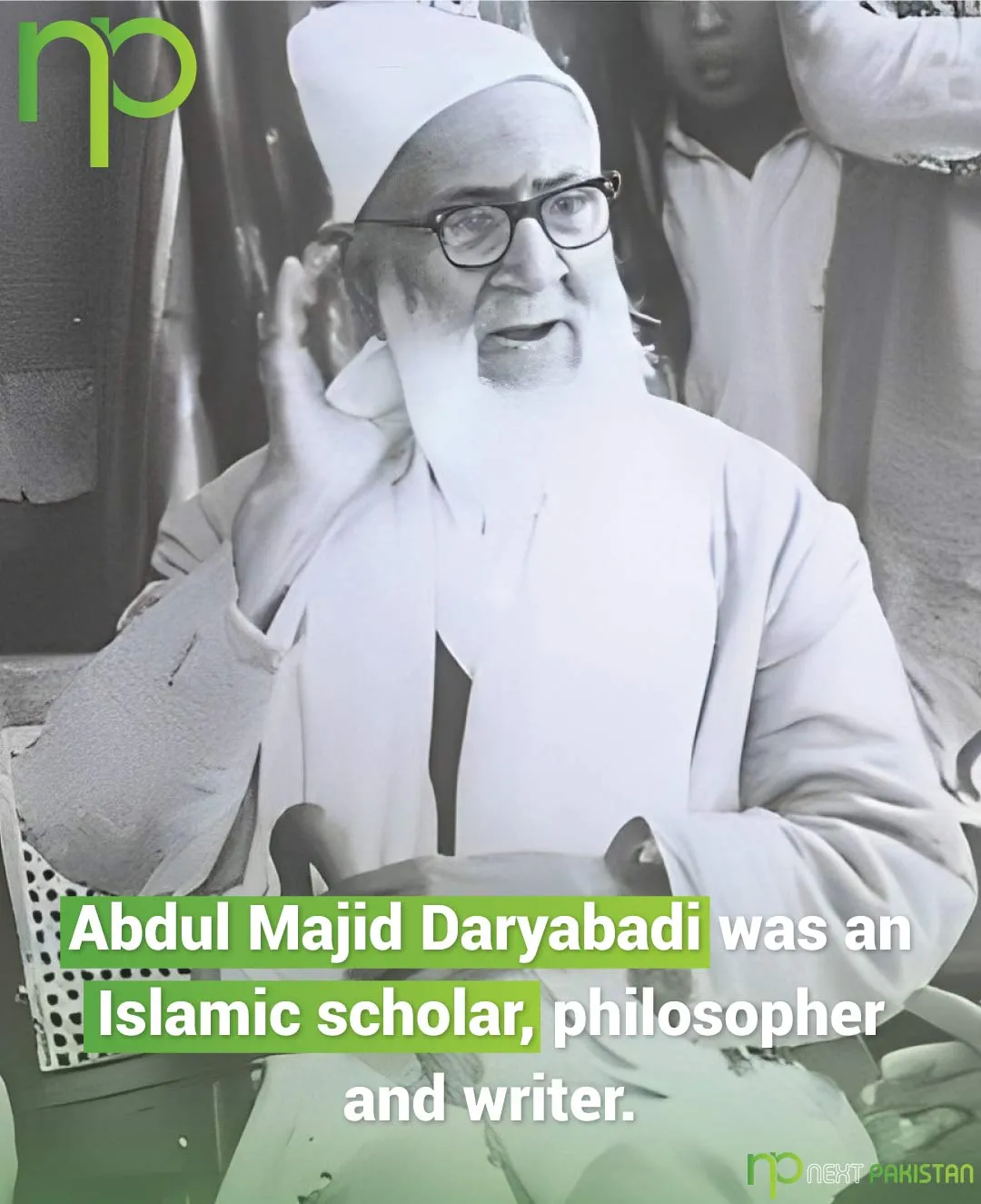
- March 25, 2024
- ubaidah khan
- 0
Abdul Majid Daryabadi (16 March 1892 – 6 January 1977) was a distinguished figure in the 20th-century Indian subcontinent, renowned for his work as an Islamic scholar, philosopher, writer, critic, journalist, and Quranic interpreter. He stood out as a significant Muslim intellect concerned with the issues of modernism, comparative religions, and orientalism in India. Daryabadi initially identified as a “rationalist,” distancing himself from religious beliefs for about nine years before experiencing a profound reconnection with Islam. His contributions were not limited to scholarly works; he was deeply involved with the Khilafat Movement, the Royal Asiatic Society, Aligarh Muslim University, Nadwatul Ulama, Darul Musannefin Shibli Academy, and other leading Islamic and educational organizations. Moreover, he was a follower of esteemed scholars like Ashraf Ali Thanwi and Hussain Ahmed Madani, which highlights his integral role in the Islamic scholarly community.
Early Life and Education:
Born in 1892 in the Barabanki district of Daryabad, Maulana Abdul Majeed Daryabadi was destined to leave an indelible mark on Urdu literature and journalism. His early education was rooted in the traditional studies of Urdu, Persian, and Arabic, fostered under the guidance of his family. The intellectual atmosphere of his home, coupled with his father’s position as a deputy collector, played a significant role in shaping his early academic pursuits. Moving forward, he attended school in Sitapur, passing his matriculation examination, before heading to Lucknow for higher education.
A Passion for Philosophy:
From his student days, Daryabadi was deeply enamored with philosophy, a passion that would define much of his intellectual journey. His remarkable contributions to the field include not only his original works but also his adept translations of significant philosophical texts into Urdu. Among his notable achievements is the translation of “Conversations Berkeley,” bringing complex philosophical ideas into the reach of the Urdu-speaking audience.
Struggles and Success:
The death of his father brought financial responsibilities to the forefront of Daryabadi’s concerns. Initially aspiring to sustain himself through essay writing, he soon found the path challenging, leading him to various jobs with little permanence. It was his move to Hyderabad that marked the turning point in his career, with the publication of “Falsafa-e-Jazbaat” earning him acclaim in academic circles. This work, alongside his other philosophical writings and translations, filled a significant void in Urdu literature concerning philosophical discourse.
Journalistic Endeavors:
Daryabadi’s prowess was not confined to philosophy alone; he also made significant contributions to journalism. His editorial stints with Urdu newspapers such as Hamdam, Hamdard, and Haqiqat, and his own publication, “Sadiq,” showcased his exceptional command over the language and his ability to engage with readers on various issues of importance. His journalistic works reflected his deep intellectual insights, marked by clarity, fluency, and an underlying effort to preserve the aesthetic beauty of the Urdu language.
Legacy and Literary Style:
Maulana Abdul Majeed Daryabadi’s legacy is one of intellectual brilliance and literary finesse. His translations are celebrated for their natural flow, reflecting a profound understanding and mastery over both the source material and the target language. His writing style, characterized by its simplicity, eloquence, and occasional colloquial touches, speaks directly to the reader, inviting them into a dialogue that enlightens and inspires.
Maulana Abdul Majeed Daryabadi remains a towering figure in Urdu literature and journalism, whose works continue to inspire and educate future generations. His life and achievements serve as a testament to the enduring power of intellectual pursuit and literary expression.